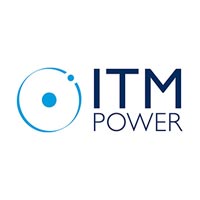A consortium of Japanese auto giants on Tuesday announced plans to set up a new company next year to build more hydrogen refuelling stations, in an effort to bring fuel-cell cars into the mainstream.
There are currently 2,200 fuel-cell cars in Japan with 91 hydrogen stations, according to the industry ministry, but a lack of stations has been a major hurdle for carmakers as they seek to boost production.
A total of 11 firms, including Toyota — the manufacturer of the Mirai, the world’s first mass-market hydrogen fuel-cell car — Nissan, Honda and the Japan unit of French industrial gases company Air Liquide have agreed to form the company.
The new firm wants to build 80 stations in the first four years of operation, the companies said in a joint press statement.
Fuel-cells work by combining hydrogen and oxygen in an electrochemical reaction, which produces electricity. This can then be used to power vehicles or home generators.
Toyota launched the Mirai — which means “future” in Japanese — in late 2014 as it looked to push further into the fast-growing market for environmentally friendly cars.
The Mirai was its first mass-market hydrogen fuel-cell car, after Toyota scored a win with the top-selling Prius hybrid, which combines a regular engine and rechargeable electric battery.

